
The Post Secondary Transition Conversation
We talk about the ins and outs (and everything in between) of the secondary transition process for families of students with disabilities! Hosts Meghan (Smallwood) and Patrick (Cadigan) serve as supportive guides, leading families step-by-step up each rung of the transition ladder.
Also check out our parent website: https://www.postsecondarytransition.com
The Post Secondary Transition Conversation
057. Community Discussion: Zabrina Kearns - Home Turf Transitions Pt. 2
Hosts Meghan (Smallwood) and Patrick (Cadigan) continue their conversation with educator, supervisor and transition coordinator Zabrina Kearns. They cover the importance of teaching soft skills like professionalism & interactions, the need for students to gain experience in various industries, the complexities of funding and the need for better communication with families about available resources through local DD and VR agencies. Join the conversation!
Episode Keywords:
DVRS, transition, students, coordinator, families, learning, jobs, DDD, career, graduate, community, volunteer, challenges
Links:
University of Kansas Master Program in Secondary Education & Transition (site)
Charting the LifeCourse (site)
New Jersey Division of Vocational Rehabilitation Services (site)
Trying to find your states Rehabilitation Agency? Look for it here.
Project Search (site)
Pascack Valley Regional High School District Transition Resources (site)
To download a copy of a transcript for this episode or any of our previous conversations, click here.
Also visit our Podcast webpage to find links to all of our other discussions; go to www.p2transition.com.
Additional information about post-secondary transition can be found at our website.
The Post-Secondary Transition Podcast Facebook page.
Visit our YouTube Channel to find additional video resources.
Intro/Outro music by AudioCoffee from Pixabay.
Transition music by Joseph McDade from Transistor.
Welcome. This is the Post Secondary Transition podcast. We have conversations around the ins and outs and everything in between of the transition process for families of students with disabilities. I'm one of the hosts. My name is Meghan Smallwood, and I am a public school transition coordinator, and my co-host is..?
Patrick Cadigan:And I'm Patrick Cadigan, and I am also a public school transition coordinator. So here we are this week, we're going to continue our conversation with Zabrina Kearns from the start of our discussion last week, you'll remember that we met Zabrina in a social media group for transition coordinators, and she was happy to meet with us and talk about some of the things she's doing. So we'll continue with that discussion already in progress. The other thing, though, that I find interesting is, is that when having this discussion, and this has been coming up quite a bit lately, is the challenges, even post covid, just how that whole like that whole event, decimated so much of what was being done, or at least brought it to a screeching halt. And we're still feeling the effects of that like we're still hearing like stories families who were talking about, you know, just roadblocks that they keep running into, or funding issues or stuff. And a lot of it comes back to being, you know, that they're saying that covid had an effect on that,
Zabrina Kearns:Yeah. I mean, that definitely was the case. Immediately after, it was very hard to find job sites that would take us on internships, yeah, but now we're, I mean, I think we have somewhere between 20 and 25 business partners in the immediate area here that our participants rotate through. But that could be a little bit challenging in itself too, because my participants, who are very successful, the parents, automatically assume like that the place they're going to work, right? So I think some of my next steps are learning that third year. So my students who are graduating, what does that third year look like? Can we start fading your job coach, and can we start placing you at an internship site that's not in our bag of tricks, but is more in line with what you see yourself doing.
Meghan Smallwood:We've had all that too. I know when they've been doing so well, or, like I said, when they go self directed, and the families are like, Well, where can they go volunteer? Can they continue to volunteer here? We're like, Well, I mean, we have so many other students. We want to volunteer too. We don't want to just, all, you know, taken away. But I get where they're coming from.
Zabrina Kearns:Definitely, especially because you've worked so hard to build a rapport...
Meghan Smallwood:Right, right.
Zabrina Kearns:...but that's really one of my next goals, is, how can I, you know, and I don't know what your students to staff ratio is, but you know, we don't necessarily always have the luxury of either sending one, you know, one to one out. I mean, I do. I it's usually two to one here, and I do have many participants who can go out by themselves, and I will intentionally send them to my places where the owner of the business is a built in job coach. Like, I have places here who just get it. They are our kindred spirits, and they're like, I've got this. You don't need a coach here. And they're taking data for us and giving us feedback. And then we'll have coaches come in sporadically to get some data, of course, and then to have conversations. And then myself, I go in, our behaviors still go in. But I have a couple of sites here that are just like, Nope, we understand. So if I can make more business partners like that, then yes, our students who are leaving and exiting would have greater opportunity to potentially get hired, right? Also, and I don't know if you run into this issue, it's twofold, right? It's we're really trying to teach you these entry level soft skill, right? Professionalism, how to interact with colleagues, how to interact with customers, how to dress appropriately for work, taking less breaks, right? That's kind of our Mo is not necessarily that you're walking in and learning how to take an engine apart. Yes, right? So it's not, you know, when we talk about work based learning, it's really those soft skills, yep, and I have had students who are very career tracked, and that's a whole nother conversation.
Meghan Smallwood:Yeah, that. That is a conversation we have with a lot of parents. When we approach them with our work program out in the community, and they see some of the jobs, and right away they're like, Well, I don't want my child out there cleaning. I don't want them working here. So we have to go into the explanation about, well, they've never had a job. Think about when you were 16. You didn't start out in your career field. You had to learn what it was like to have a job and all those soft skills. So that's what we're aiming to do, you know, and work our way up to building to that career. But some parents, I think, have a hard time with that.
Zabrina Kearns:I mean, my first job was sweeping floors at a pizzeria and answering phones, right?
Meghan Smallwood:Exactly. Yeah.
Zabrina Kearns:And the beauty of like, I can sometimes find myself stressed about our 13 week rotation, because it's to change like, you know, 14 plus my 620, 2323 students every 13 weeks are rotating to new jobs, right? There's like, holy smokes. How am I going to do this factor? But then it's by the time you graduate from us, you've had retail, pet care, business settings, restaurant settings, break that down into fast food versus sit down like really, getting a nice taste of many industries. And you decide, okay, I really like that. I hated that. This was had me on my feet the whole time. This one, oh, don't send me back to a place where I have to have that much, you know, communication with people stick me in the back room. I like that better, you know. And we're learning skill sets and preferences and and things like that. So if I have participants here who are telling me they're taking classes at a community college at night, or they graduated high school with certain certificates because they went to, let's say, a BOCES, or, you know, half day High School, half day trade school. Those are the participants that I am more inclined to tailor what they're doing. So for example, someone here was pursuing their baking certificate at a community college. So then I said, I will work hard now to find you a more tailored experience. It's someone that I could send to a job site solo, so I didn't need a coach there all the time. And you're putting in effort outside of here to craft, you know, hone in on your skill. But my job coach is not going to be able to teach you how to ice cupcakes, right? Or, you know what I'm saying, like, and then another participant who was took, like, video editing courses. So because of that, and because he continued to pursue it, I was able to one of his work based learning, was with a local videography company, and he happened to be the one who filmed our promo video for our 18 to 21 program. But that was challenging, because even with that, a lot of his experience was driven by me. So I kept coming up with, what could we do next? You know, we were even shooting commercials for a lot of the other sites for their social media. But, you know, I'm willing to get more creative and put that kind of effort in when the student and family are simultaneously enrolling them in courses outside of here, I know that you're very driven in that career. You know what I mean? You can't just come and say, like, I want to be a voice actor.
Patrick Cadigan:I want to stream on YouTube, okay.
Zabrina Kearns:Right, job coach here, and what we're we don't have the capacity to teach you that kind of nuanced skill. But if you're learning it outside of here, and you want me to now marry that with my coaching, and I can give you a coach that it's different than what I can't tailor it to that degree, to every single participant. That's...
Meghan Smallwood:Right, no, that makes perfect sense. And, and I think, you know, it shows the dedication, and they really are, have the drive, you know, it's not just, I feel like a lot of times we hear when they come in at 14, they they're going to do this, they're going to go and be a doctor, like, well, have they shown an interest in that? You know? And you come to find out, no, not really. So, yeah.
Zabrina Kearns:Right, well, especially at 14, I mean, your career that happens is, and he's got, like, a laundry list of and I'm sure that's going to change 15 times before he graduates.
Meghan Smallwood:Exactly as I would hope it should, because every year, you learn a new skill set, or you're exposed to a new air, you know, job, and you discover something more you like or you didn't like, I mean, and that's why I told the families, like, you know, we do interest inventories, and they're like, Well, I've never seen them show an interest in working with animals. And I was like, well, that's why we try it, because firsthand, we'll see for real. Did they really enjoy doing this? Or did they get in there and they're like, No, not for me. So it's just a lot of things that go into it, but the parent and the student need to be open to that experience.
Patrick Cadigan:And then Sabrina, when you so playing off of that, when you are communicating with families, or like, when very early on in the process. This as you are learning both the student and the families. How do you communicate to them your expectations or what you I guess, how do you, how do you define your job to the families that you're about to work with?
Zabrina Kearns:Hmm, well, again, we're taking it from the lens of like, my role as your work based learning supervisor over the course of these next few years is to open doors for you to as many career clusters. That's what it's called in New Jersey, career clusters as possible. So you can begin to narrow down which of those clusters is most appealing for you, career wise, and then simultaneously, it's to teach you the readiness skills to be a great employee. And we'll talk a lot about what, what being a great employee looks like. So that's when I'm wearing that hat, when I'm wearing the transition coordinator hat. And I need to get this quote because I just actually put it on my LinkedIn. But part of my coursework in one of my classes at the University of Kansas, they said our job at transition coordinators is to help you design a life that others envy. And I I just that quote just makes me feel so good inside, right? Like, what if you were to just you were to tell people, what is your ideal life? What is someone's ideal life? It's having family around you that you connect with. It's having a group of friends. It's maybe volunteering in your community and feeling satisfied with work and feeling like you're contributing, making a contribution, so I like that. Yeah, right. So as transition coordinator, I have now firmly stated that my role is, when you graduate here, we want you to have a life that other people would envy, like, Wow, good Sabrina. She's got it going on. She's got, she loves, you know, she has relationships, you know, whatever that looks like, her friends, her family, her kids. She's giving back to her community, whatever that looks like. And she's, she's making her mark, whatever that looks so and for our students, obviously that's going to look very different. So I think that even if you you know we sometimes look like, Oh, they're not going to have a career. Ultimately, we're going program route. We don't have to look at that like, right? No, I'm still doing things in other aspects of my life where maybe I'm contributing. So at my day program, I might be on the receiving end, and I'm a taker, but in the community, I'm volunteering for dog shelter or I'm volunteering for my local food pantry. So there's ways that I can still be a contributor...
Meghan Smallwood:An active participant in the community, yep. Yeah, that's what we have. We follow the charting, the life course. That's been some new framework that the state of Maryland, you know, especially for those going self directed, but for anyone as they're planning to move forward, that we've encouraged our families. And we have a woman whose son went through our county, and she always phrased that, I love this. It's, you know, what's your good life look like, and it's going to be different from, you know, this person's good life, but what's important to them? And keep that in mind, and like, not just from one person, it's from all these different people in their lives, contributing to what their good life may look like. But it just makes it puts in perspective, because I feel like we get so wrapped up in they need to work, they need to do this, they need to do that. But like you said, it's so it's so dependent on the person and what's important to them, and we have to remember that as we plan.
Zabrina Kearns:I also, in addition to my work here in the school district, I work for an agency, and rooted in ABA therapy, so many of these students, or learners, as we call them, there are getting therapy in home. And my boss recently approached me and said, You know, I see what you're doing in your school district. I would love to extend our services to 21 and beyond now, so I have taken on the role as our adult Director of Adult Services for that agency. And when I just met with our staff, I really encourage them. You know, a lot of times you're like, I want to be with the little ones, you know, so in your preschool bubble, or you get in your elementary school bubble, and you're very narrow, visioned of this is a lifespan disability, and our little guys grow up to be adults, so I encourage them that even if they have no desire to necessarily work with the adult population to get themselves. In a position where they are meeting adults with special needs, because I think it's important to see the work that they're doing and the foundation that they're laying is contributing to who these individuals will be someday, you know. So, you know, I said to them, I'm like, I am going to plug the 21 plus division now for our agency, but at the same time, even if that's not necessarily where your heart's desire is, put yourself in a situation or a position. You know, we have a lot of there's agencies now here who are doing social groups for adults, and it's really cool. I'm like, if you can volunteer your time on a weekend just to get give yourself exposure. And you know, I never thought that the 2018 to 21 population would be where I settle, but it this has been such a joy and a blessing in my life. And I love like that, last day is so bittersweet when they're leaving us, you know... Yeah....but to see how far they've come, even in just three years.
Meghan Smallwood:And I'm sure they still keep in touch with you?
Zabrina Kearns:They do. We just went the New York Giants just did Fan-Fest Friday night, and I saw two of my graduates.
Meghan Smallwood:Oh, that's awesome.
Zabrina Kearns:Oh my gosh. Like, what are you doing? What are you up to? Like, so excited to see you here. And... Oh, that's so cool....the funniest part. Is when these guys are like, I'm turning 21 I'm having my first beer. I'm like, you know, like of your these students that you just don't get out...
Meghan Smallwood:Yes, many that leave, and they're like, Okay, once I turn 21 we're being going to go and be friends on Facebook.
Zabrina Kearns:Right......navigate.
Patrick Cadigan:If you can articulate what do you see as the biggest benefits to your job?
Zabrina Kearns:For my students?
Patrick Cadigan:For you actually. From looking at it, from the job.
Zabrina Kearns:The biggest benefits? Well, I don't know this is going to sound strange, I guess, but I think it's taught me, it's actually helped me in my own life, because I have I chuckle sometimes when I'm doing some of my own adulting and I'm like, girl, you need to practice what you preach, right? So here we're like, you know, use your Google Calendar and time management and budgeting, and then in my own life, when maybe I'm dropping the ball in some of those areas, I've actually, you know, put my own teacher hat back on. And I'm like, All right, maybe this is an area teacher, Sabrina, can help real life, Sabrina, you know, so if anything in my personal life, it's reminded me that, you know, life is hard not having a disability, right? Like we have so many responsibilities, there's so many things to navigate as an adult, everything from social interactions to holding down a career and being a parent and juggling all these hats that we wear and we do put really high expectations on, I think just students in general, and then our Students with disabilities are navigating another whole layer of that. So if anything, it's shown me the areas in my life where maybe I personally need to step up, and then it's shown me areas where I need to show myself a little grace, and my students a little grace, that it's, you know, it's okay to make mistakes. We're here to help them course correct. And I thank God that I have really good friends in my life who want me course correct when needed.
Patrick Cadigan:Good deal. And then now what about, what are the most challenging aspects of the job?
Zabrina Kearns:I would say that whole when it comes time to the baton passing is, you know, I, I'm gonna be very blunt. I saw someone posted in one of our groups. I don't know which group we actually met in, because I'm in a few it was a teacher aide, and she wrote, oh, our transition coordinator dropped the ball because this kid graduated and didn't have a job, and I was like, Oh, ouch, right now, it wasn't me she was talking about. I didn't know who this girl was, but I'm like, you could say that about me, that I've had students leave here and they didn't have a job when they left, but I don't know if you understand all of the variables that go I have parents who flat out told me, I think your program's great, and I love that they're doing work based learning, but I have no intentions of them working when they leave here flat out now my aide might not know that, because it's kind of none of their business, right? We share some information on a need to know basis. They're not sitting in all of the IEP meetings what the family wants and desires in terms of. What their medical benefit is, or whatever it is personal that they may not work after. You know, I don't want to say like this. The only phrase I could think of is like, you could lead a horse to water, but you can't make them drink. I don't that's necessarily the kindest or most appropriate phrase in this statement. But like, if we're giving you all the tools and all the connections and you opt not to use them, it could still look, at the end of the day that I, as the transition coordinator, dropped the ball, didn't do my job right? The other really challenging thing for me is I'm learning ddd and DVRS and what they offer. I just happen to be a transition coordinator who has a son with an IEP. So what I have done Now, mind you, his functioning level is significantly higher than my students here. However, I decided at age 14 for him to register to DVRS, because you can do the Pre-ETS, the pre-employment transition services. And I did it just to see what it was like on the parent side. The turnaround time as slow as everyone's telling me, it actually wasn't. I got the letter was four weeks to the day, then we turned it in. My appointment was two weeks after that. DVRS is actually hunting me down because I haven't had a few minutes, because I'm moving to connect with them. So I'm finding that all the kind of rumors that I heard about DVRS to date are not accurate. Now, are they on top of me because they know my role as an educator? I don't know. I can't answer that. But learning, I would say challenge number two is learning, um, DDD and DVRS, what exactly they offer, what ages you're allowed to have access to, and things like that, and then those limitations of your benefits...
Meghan Smallwood:Yeah.
Zabrina Kearns:...well, we're teaching you all these great work skills, but then you can only work so much.
Meghan Smallwood:You can only work, yeah.
Zabrina Kearns:...could lose your benefits.
Meghan Smallwood:So for those, you said the case managers that aren't in like, you know, the students who aren't in the 18 to 21 program, but they have case managers in the school who kind of also act as the transition coordinator or person for them. What kind of do they get any training on DVRS or DDD, to know what to tell families.
Zabrina Kearns:I don't know truthfully, that those students are accessing or, I mean, they're told about it, but I think in their head, they're like, Oh, we definitely don't need DDD. But I don't know that DVRS is being promoted as much as maybe it should be.
Meghan Smallwood:Yeah.
Zabrina Kearns:Because even in some of the trainings that I've been to like I've learned they can even help with college, college tuition could be paid if you need help or accessing special education services. And I don't think many people know about...
Meghan Smallwood:Yeah.
Zabrina Kearns:...perks.
Meghan Smallwood:That's similar. So ours is, is called DORS, the Division of Rehabilitation Services; that's our DVRS. And I would say the same. It's not they're just notoriously been thought of as inconsistent with communication, which, I think it varies too, depending on how on top of it you stay, or, you know, the coordinator or the counselor you have, but ultimately, they offer a great amount of things, but I don't think it's taken advantage of enough by students and families.
Zabrina Kearns:Right? And then the other blurry line, which is maybe something you can educate me on, is we do well, you said you don't really have alternate programs, like, do you have Project SEARCH?
Meghan Smallwood:We do have Project SEARCH, yes.
Zabrina Kearns:So we have Project SEARCH, and we also have another program here, and it's the big question of the day is, who funds that? So we have a participant, let's say who's maybe a little bit beyond offering, but they they want to go to one of those other programs who's paying for that ultimately, gotcha right? If you're if you're functioning at a level that they basically supersedes what we're offering, you're ready to work. You're ready to take college classes, but you're 19 or 20, you're technically allowed with us till you're 21 you could start that program early. Where does the funding come from?
Meghan Smallwood:Yeah, yeah, that's interesting. Yeah. Project SEARCH is the program in our in our county that is, like, considered top tier for independence, and like, you know, we only have 12 spots, but they have to be DORS and DDA eligible, or DVRS and DDD eligible.
Zabrina Kearns:Does your district pay for Project SEARCH kids or DVRS is paying...paying?
Meghan Smallwood:They're still technically in the school system, so the district would be paying it, because DDA would not kick in until 21 and I think DORS is just, they just have to be eligible. But I wish we had more options than just that. You know, it's, I think, of all the students we have. And I wish there was other programming options, alternative options before 21.
Zabrina Kearns:I know, after starting this career, specifically with transition, my heart and I know it's going to happen someday. I'm just not in a position at this moment like I really want to start my own...
Meghan Smallwood:Yeah.
Zabrina Kearns:...post-21...
Meghan Smallwood:Oh, there's a couple transition coordinators I have joked about that. That'll be our retirement gig.
Zabrina Kearns:Right? Let me add one more thing to my three job titles and the agency I'm working, but I just see such a need, especially for the gray kids, right?
Meghan Smallwood:Yes.
Zabrina Kearns:Not quite a day program......uh, you know column and you're not quite the
Meghan Smallwood:Yep. full time work column. Yep.
Zabrina Kearns:Who are you?
Meghan Smallwood:Those tweeners.
Zabrina Kearns:Right? How can we best support you? And that's that is what DDD self directed is supposed to be, right? So we're going to get you working part of your day. We're going to get you out in the community, but that still requires, like, a lot of manpower on mom and dad...
Meghan Smallwood:Yes.
Zabrina Kearns:...potentially not working, you know, themselves.
Meghan Smallwood:Yes.
Zabrina Kearns:So I would love to be able to design something that encompasses all of those things for you. Mom and Dad can still live their lives and work and then this student, or whatever we're calling them when they graduate, this young adult kind of has the best of all worlds that we're offering you while you're here, community, access, some kind of vocational experience, and then access to your community.
Meghan Smallwood:Well, let me know when you get it sorted. I will. We'll copy your model.
Zabrina Kearns:Yeah, you guys will be the first call, for sure.
Meghan Smallwood:Yeah,
Patrick Cadigan:I can definitely throw out there that this conversation is on a whole different level, quite where I'm at right now. As we were moving into season three, when we did the previous two seasons, I was the special educator. So I was always positioning myself as the surrogate for the family. I've only been doing Transition Coordination now as a job for like, a couple of weeks. And it's, there's, there was always the the part that we talked about, and the part that I thought, that I understood. And then now there's...
Zabrina Kearns:This is my fourth year here. I mean, I'm many years under my belt, like in general, but transition world four years, and I feel like I have a lot to learn. I mean, I only have two classes left in my grad school for transition, and I still feel like I have a lot to learn. And the you know, and I will say the University of Kansas is doing amazing things, amazing. And the state of New Jersey, when you sit in these community of practices, also their vision of what this should look like is also amazing. But the vision and the application are two different things, and trying to work your best with the budget that you have, the number of staff that you have, all the moving parts that go into what a day I mean, if I had a camera following me around, you'd be like, how are you even doing this? You know, because you want everyone to have the best experience possible, and that takes a lot of people and a lot of time and a lot of resources.
Patrick Cadigan:Well, and that's...
Meghan Smallwood:Yeah.
Patrick Cadigan:...where the individualization comes in, because that's one of the other challenges in terms of just transition in general. And again, it's something that I feel like my world has opened up a bit in that regards, is that Meghan has always said transition is so individualized, and now I'm kind of like what you were talking about before. I'm seeing it, and I'm watching it, and I'm experiencing it all now in real time. And it's like, oh man, how do you how do you coordinate all of that? Zabrina, we can't. Thank you enough for...
Zabrina Kearns:I agree,
Meghan Smallwood:Yes.
Patrick Cadigan:...taking the time out to talk with us. Like I said, I'm gonna have to go back and listen to this four or five times to, like, truly absorb everything that you guys talked about.
Zabrina Kearns:I'm so happy that you invited me here. And if we have other topics, I would love to come back. Like, even there's other coordinators that we can get together, even if it's off camera. Love that, because I'm, like, I said, I'm the kind of person that if you give me a task, I'm going to jump right into the deep end and try to learn as much as I can. You know, I never want to be in a meeting with a parent like fumbling. I want to know. So I'm just trying to learn every aspect of it, even if it isn't under my at the moment, I'd rather the more you know, the more you can...
Meghan Smallwood:I hear ya.
Zabrina Kearns:...so...
Meghan Smallwood:I love being able to pick up little tidbits here and there, because you just never know you're gonna need them. Well, then, with that being said, thank you, thank you... Thank you so much. Zabrina, it was lovely to meet you.
Patrick Cadigan:We would love the information from this and all our other discussions to reach as many families as possible, and we need your help to do that. So please like, follow and share out our podcast. You can find our conversations on all the major podcast platforms, including Apple, Spotify, YouTube, music, and that's just naming a few. So please share and share often. You can always find the links to the information from this discussion in our show notes. Check out our YouTube channel. We've done some of the legwork for you by curating videos of topics that revolve around transition. We have playlists that cover guardianship, alternatives to guardianship ABLE accounts. And there's still more to come as we're finding videos that we think will be valuable to use. So please be sure to subscribe there as well. And then finally, check out our website, which is full of information and links to resources around the transition process. So make sure to go to www postsecondarytransition, com, we thank you so much for the time that you've spent with us, and look forward to talking again soon.
Meghan Smallwood:Yes, definitely.
Podcasts we love
Check out these other fine podcasts recommended by us, not an algorithm.
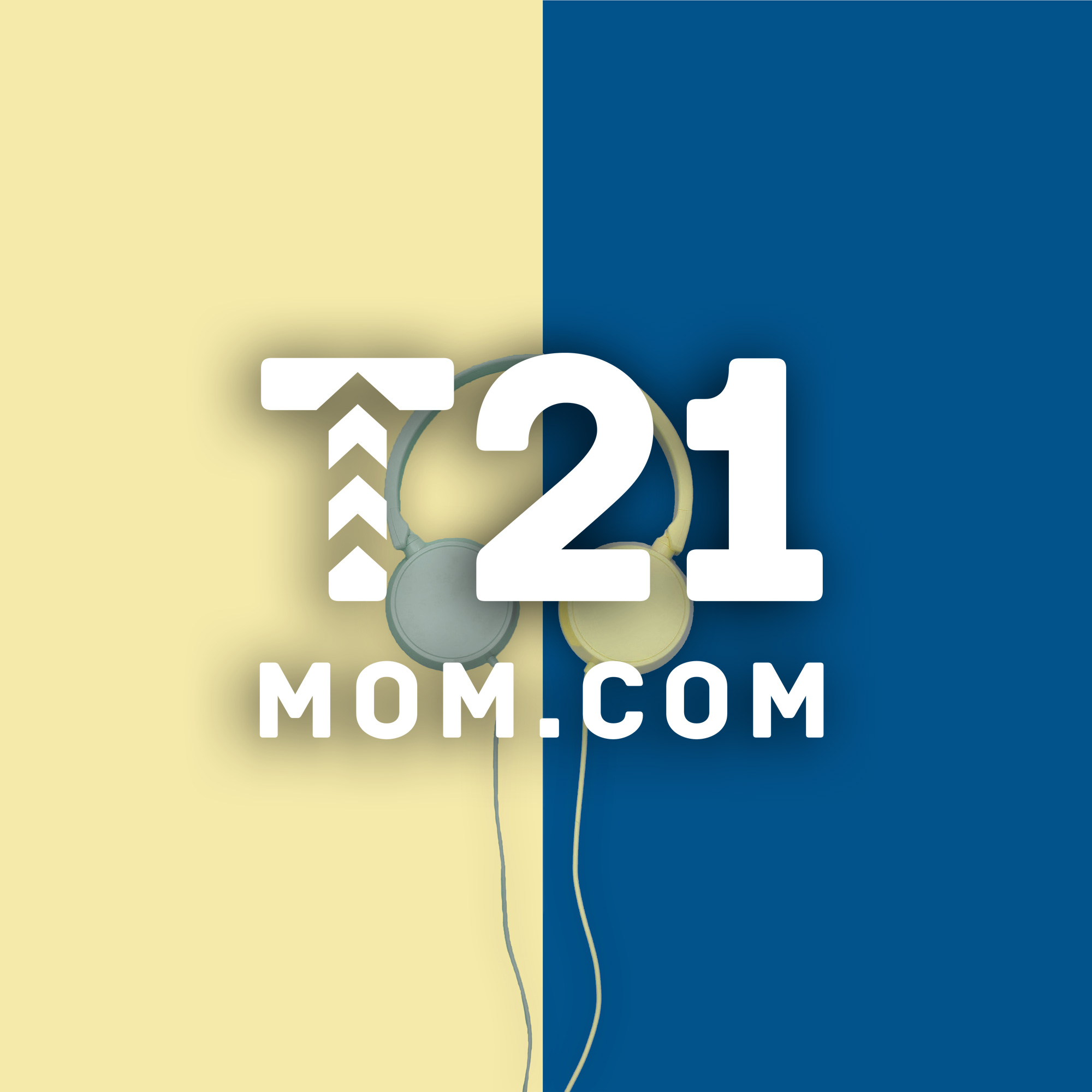
T21Mom-A Down Syndrome Podcast
T21Mom.com
The Collaborative IEP
Ashley Barlow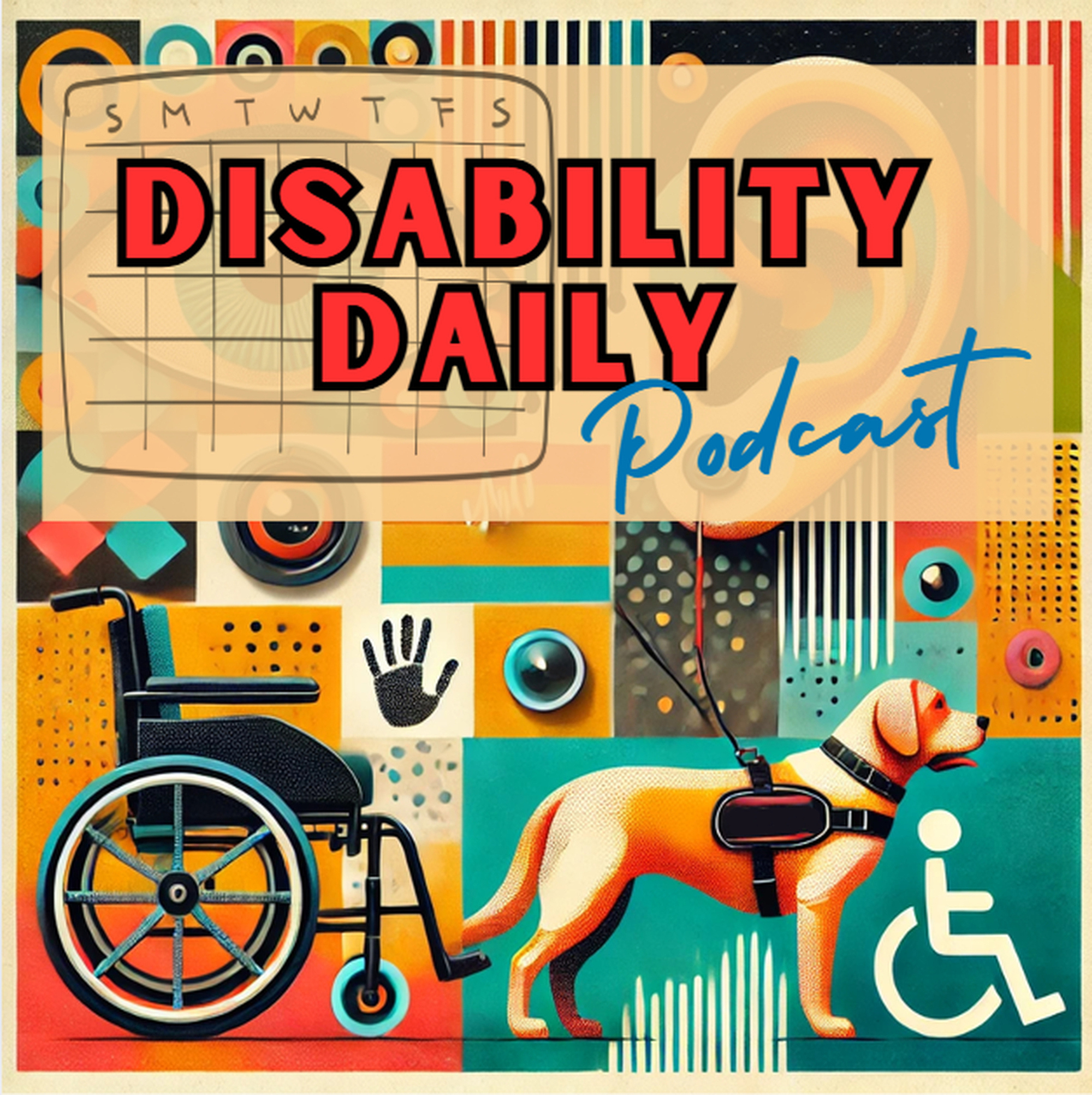
Disability Daily Podcast
Katie Healey, PhD, CPACC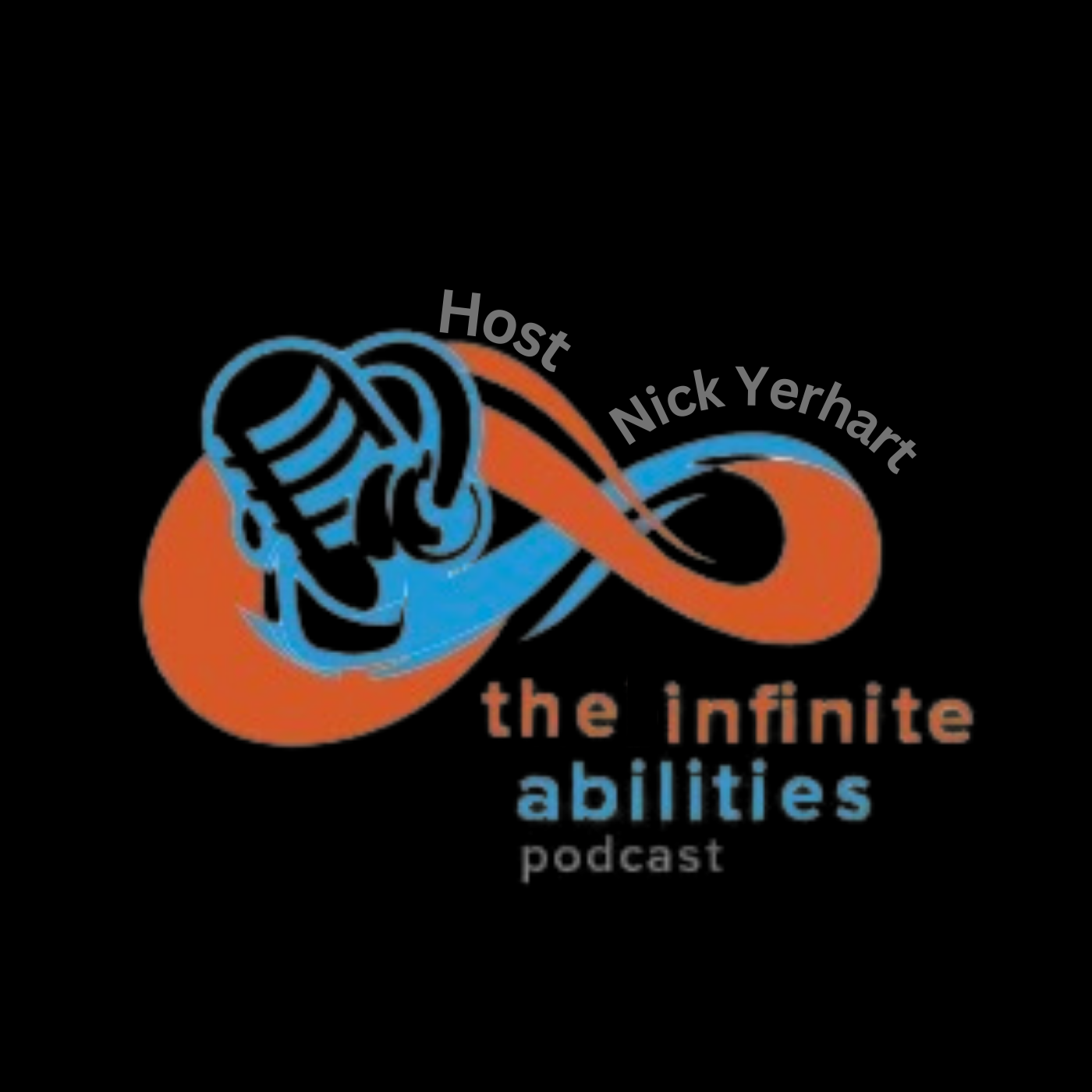
The Infinite Abilities Podcast
Nick Yerhart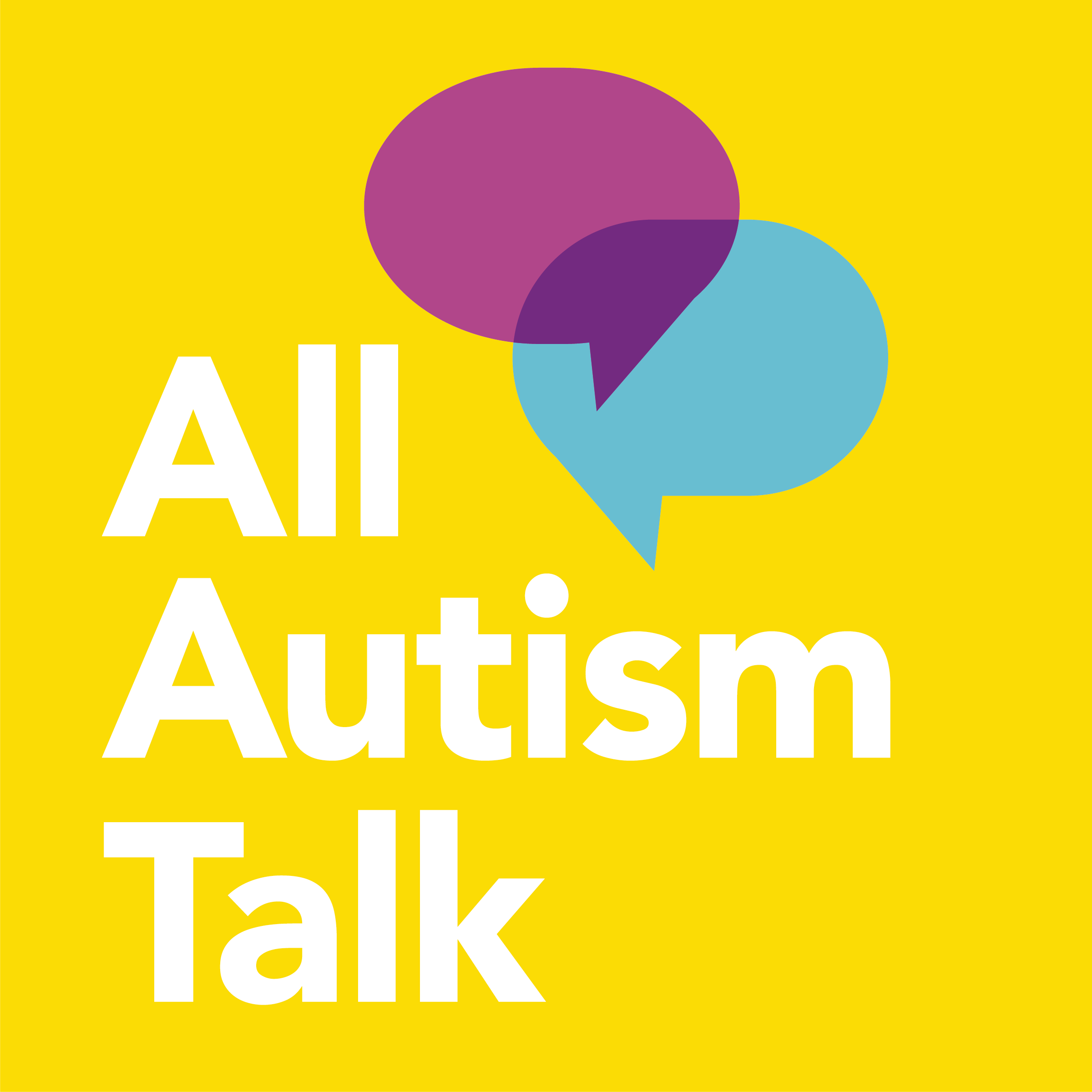
All Autism Talk
All Autism Talk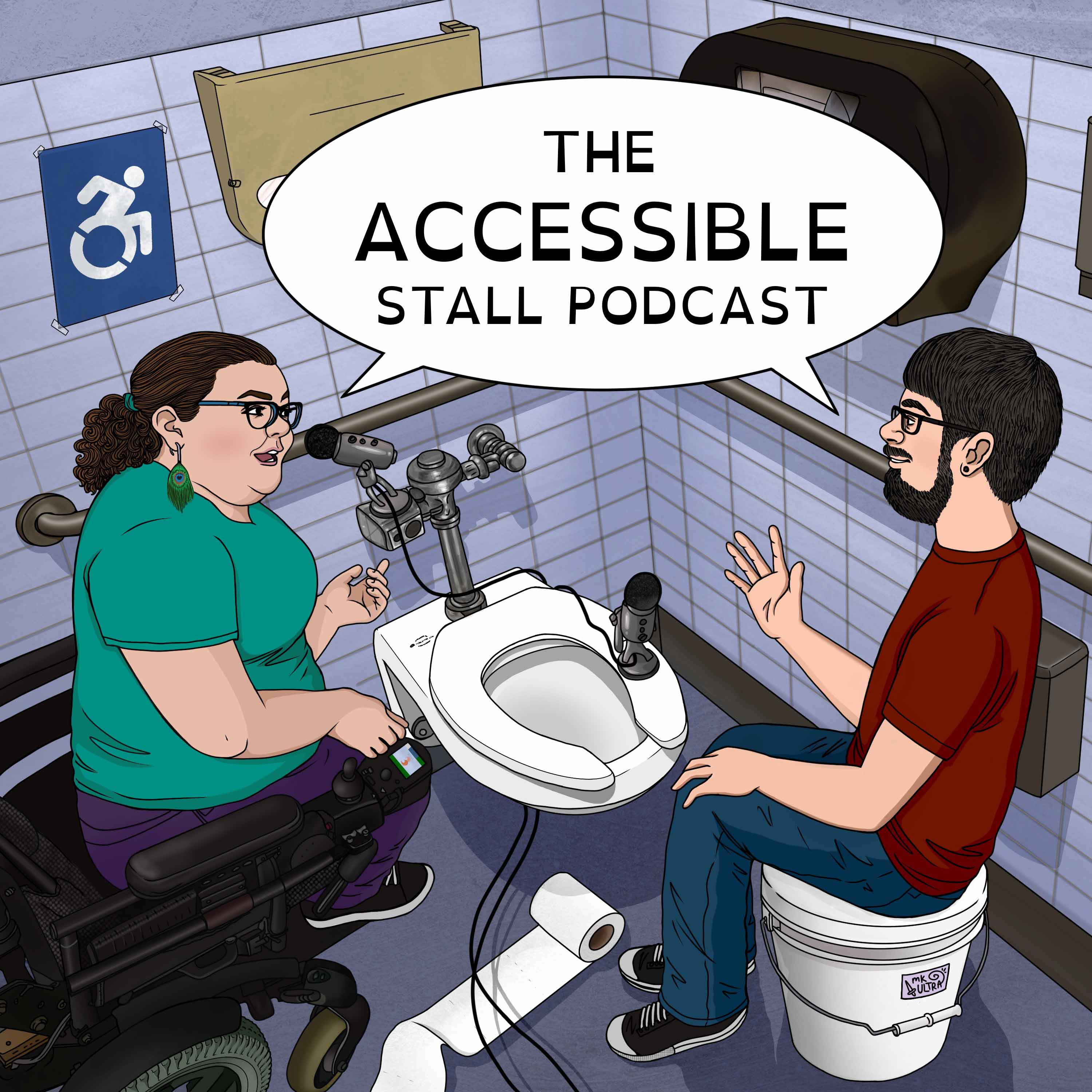
The Accessible Stall
Kyle Khachadurian and Emily Ladau
Disability Deep Dive
Disability Rights Florida
STAY Tuned: Supporting Transition-Age Youth with mental health conditions
STAY Tuned at Transitions to Adulthood Center for Research
Moms Talk Autism Podcast
Shannon Korza, Brittney Crabtree, Tash Dillmon, and Jean Mayer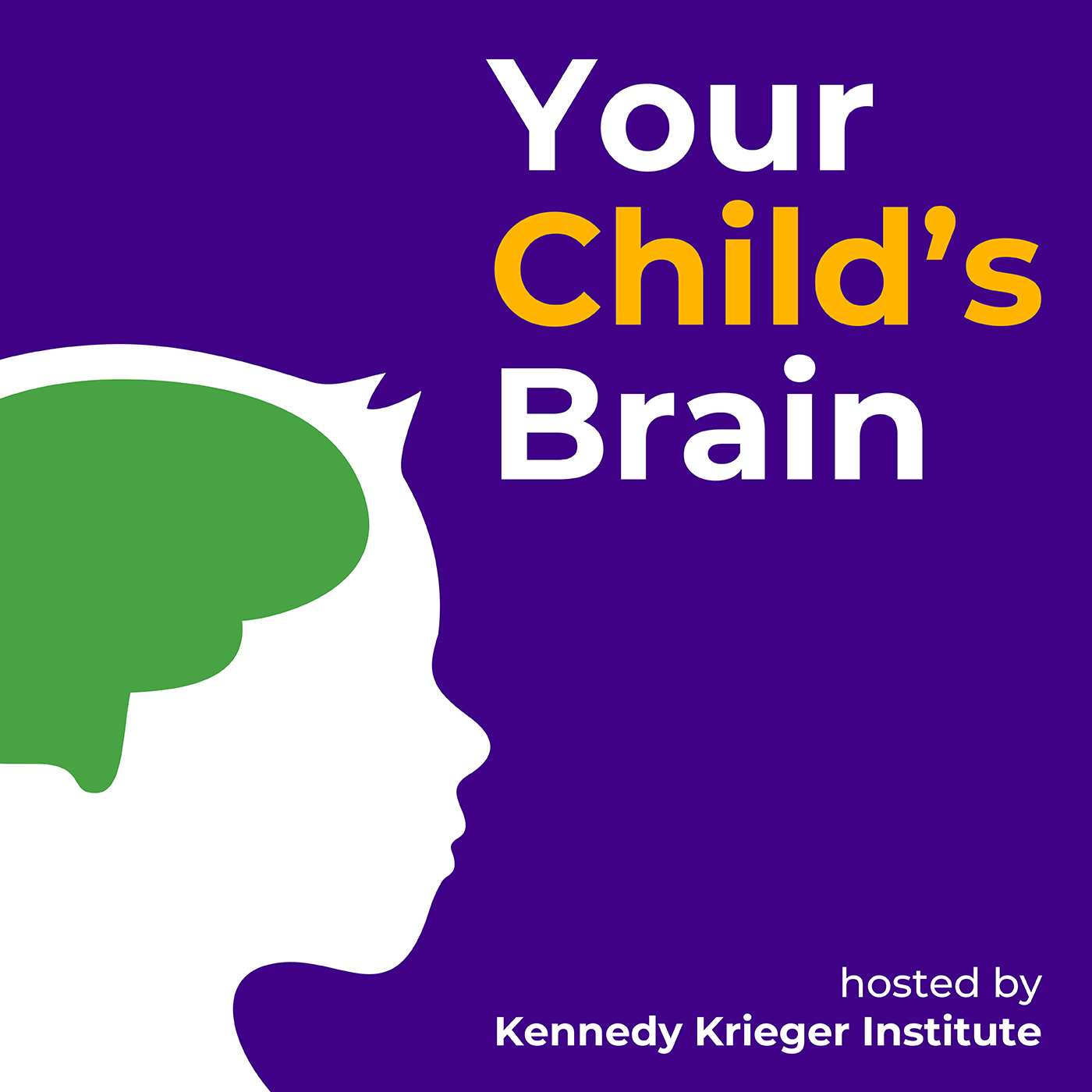
Your Child's Brain
WYPR Baltimore



